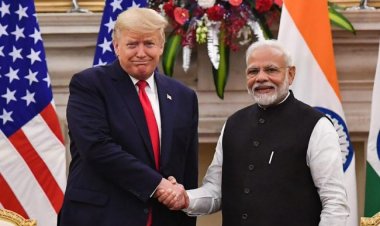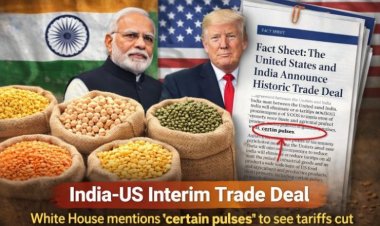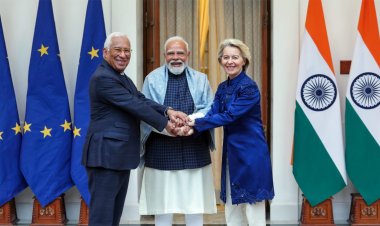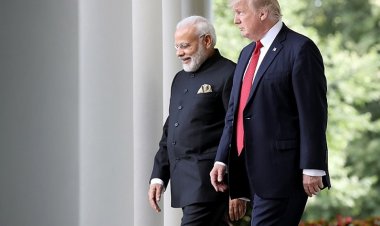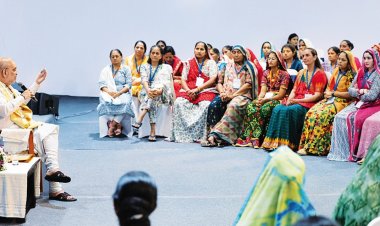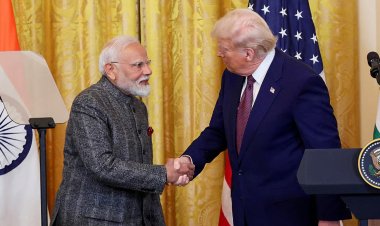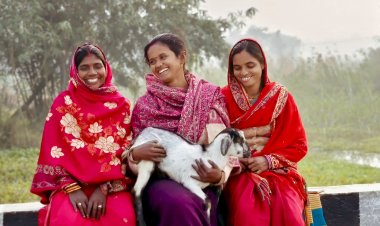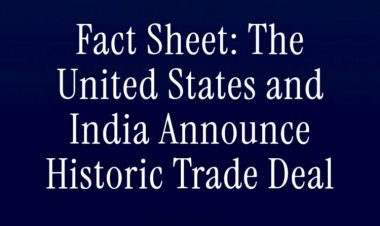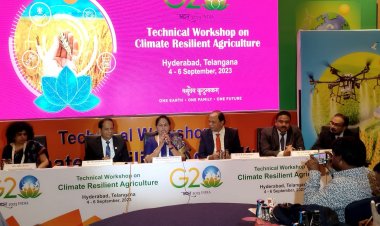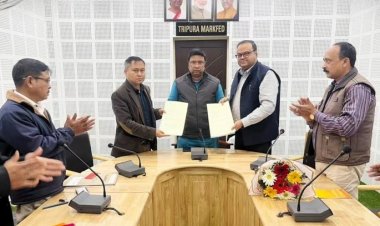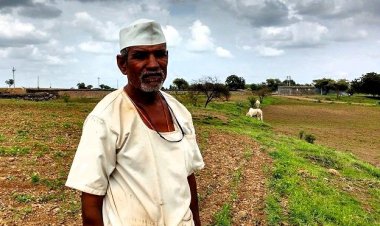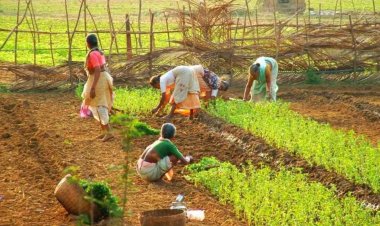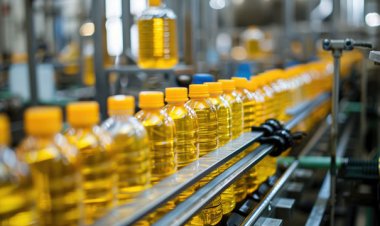Why peasant movements in Europe, what are the similarities with India?
Falling prices of farm produce, rising costs of inputs, heavy-handed regulation, powerful retailers, debt loads and cheap imports. These problems are not unique to Indian farmers.
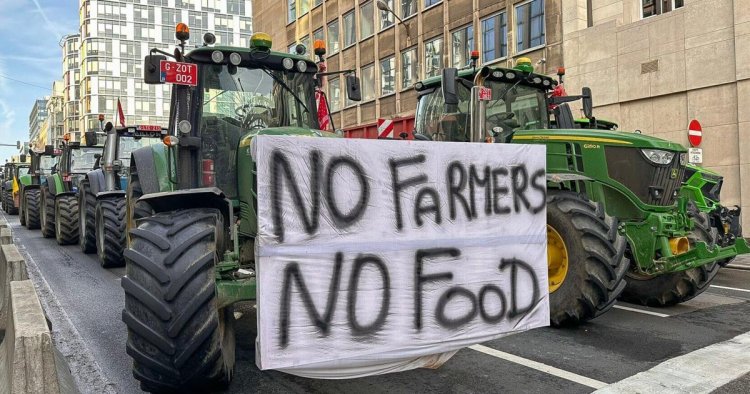
Falling prices of farm produce, rising costs of inputs, heavy-handed regulation, powerful retailers, debt loads and cheap imports. These problems are not unique to Indian farmers. Farmers have been demonstrating in most European countries for several weeks. Some of the problems are country specific, but most of their problems are shared. The new and major shared problem is the Climate Agenda, which sets targets to reduce emissions in the agricultural sector by the year 2030.
In recent days, thousands of farmers have moved to the centres of major cities with tractors. They not only parked tractors and caused traffic jams, but also overturned manure on roads, threw eggs, vandalized supermarkets and clashed with police. The attitude of the farmers has made governments of the European Union as well as many other countries to bow down. They have either postponed implementation of many provisions or repealed them.
Another point to note here is that the peasant movement in Europe is getting support from right-wing parties. Right-wing parties seem to be overwhelming in this year's June elections for the European Parliament. Despite agriculture accounting for just 1.4% of the EU’s GDP, it remains at the top of the political agenda. Farmers say the Brussels bureaucracy, i.e. officers, know nothing about agriculture. So they cannot understand the problems of the farmers.
Movement throughout Europe
In recent days, farmers appeared on the streets in France, Italy, Romania, Poland, Greece, Germany, Portugal and the Netherlands. Farmers in France showered the Ukrainian embassy with machine fertilizer after blocking roads. In Belgium, farmers reached one of the largest ports in Europe, Antwerp, and halted operations.
Amid snow in Germany, thousands of farmers brought traffic to a standstill in cities including Hamburg, Cologne, Nuremberg and Munich last month. Farmers everywhere had arrived with about 2,000 tractors. At the moment thousands of farmers in Spain are on the roads with tractors.
On February 1, farmers arrived in Brussels, the centre of the European Union where a conference on Ukraine was taking place. There, peasants threw eggs at Parliament and blew their vehicle horns together. In the French cities of Lyon and Toulouse, farmers pitched tents in the streets and blocked access to the capital, Paris. Last year, farmers in Poland, Romania and Bulgaria in eastern Europe protested against cheap grain imports from Ukraine. European farmers are opposing cheap imports of grain, sugar and meat from Ukraine.
Now the movement has reached England. Last week, farmers staged demonstrations with tractors at several places there. They say supermarkets are giving them prices below cost due to cheap imports. Only Austria, Denmark, Finland and Sweden are still untouched by peasant movements.
European Green Deal - the biggest reason
According to Renaud Foucart, senior lecturer at the Department of Economics at Lancaster University Management School in England, there are two major reasons behind the farmers' demonstrations in the European Union – climate and Ukraine. The Union’s new climate policy, dubbed the ‘European Green Deal’, has several provisions for the agricultural sector. This includes reducing the use of chemical inputs in agriculture and protecting bio-diversity. Farmers complain that it will increase their costs and administrative complexity.
Agriculture accounts for 11% of the European Union's greenhouse gas emissions. To reduce emissions, the Union has created a new policy called ‘Farm to Fork’, to make the entire block carbon-neutral by the year 2050. Targets that have been set to reduce emissions include halving the use of pesticides by 2030, reducing the use of fertilizers by 20%, leaving some farmland fallow or planting forests on it, and farming organic on 25% of the land.
European farmers are describing these policies as unfair and economically damaging. “We were neither consulted nor voted for by the ‘Climate Agenda 2030’ that is being imposed on us. We are tired of their false promises. Farmers have dubbed it climate communism. They say they are being bankrupted in the name of saving the earth. Their demand is to eliminate environmental regulations and reduce bureaucracy. They complain that farming is no longer a profitable profession for them.
Difference between government decisions and reality on the ground
After Russia's invasion of Ukraine in February 2022, the cost of energy, fertilizers and transport for farmers in many European Union countries has increased. On the other hand, governments have taken steps to reduce food prices in order to keep inflation under control for consumers. The average price of produce purchased from farmers fell by nine percent last year, according to Eurostat data
According to the Lancaster University professor, since Russia's attack on Ukraine, the EU has adopted a policy of helping Ukraine's economy. Under this policy, EU agricultural markets are open to Ukrainian grain. Many farmers in Eastern Europe have complained about the competition it provides.
In fact, after Russia's attack on Ukraine, the European Union gave Ukraine relief from quota and import duty. After that, the import of agricultural produce from Ukraine to European countries increased significantly. The effect of this was that prices fell in the local markets. Just last year, Polish farmers set up barricades on the road connecting Ukraine to Ukraine to stop trucks coming from there. After that Brussels announced to curb Ukraine's exports to neighboring countries for a few days.
After its deadline ended, Hungary, Poland and Slovakia imposed restrictions on their own. Farmers say that Ukraine's grain should go to Asian or African countries, not to Europe.
Even in France, cheap imports have become a reason for farmers' resentment. There are cheap imports from New Zealand and Chile. Not only this, imports from these countries do not have to face strict rules like European farmers. Irrigation and other regulations are more strictly enforced in the European Union.
Talks are underway for a free trade agreement (FTA) between the European Union and South America's Mercosur trading block (Argentina, Brazil, Paraguay, Uruguay and Bolivia). It is alleged that these countries use hormones, antibiotics and pesticides banned in the EU. This has also increased the resentment of the farmers. He says that we have to follow strict rules, but the conditions are easier for those with whom we have to compete.
According to Arnaud Rosseau, president of FNSEA, France's largest farmers' union, the issues are many but at the core of them is one - there is a huge gap between the government's decisions and the ground reality. According to Liz Webster, a farmer who runs the 'Save British Farming' campaign in England, England's self-sufficiency in food in the year 2022 was 61%, now it has become even less than that. Brussels-based farmers organization Copa-Cogeca said the Farm to Fork strategy was poorly designed and limited options for farmers.
Some country specific reasons too present
Some demands of farmers are also country specific. For example, in the Netherlands there is the issue of nitrogen emissions and animal farming. The issue in Germany is to eliminate tax on diesel for farming. Farmers in France feel that EU rules are more strictly enforced there. Farmers in Italy are demanding reinstatement of income tax exemption. The period of this exemption, which was started in the year 2017, is to end in 2024.
A scheme named ‘Sustainable Farming Incentive’ is being run in England since 2021. But farmers say that its aim is not to make farming sustainable, but to reduce the cultivated land to achieve environmental goals. Farmers cultivating wheat are facing a loss of 450 pounds per hectare, on the other hand, under the incentive, they are being guaranteed to get 453 pounds per hectare for planting wild flowers.
Farmer demonstration begins
The farmers movement started from the Netherlands, a large farming country in Europe. There are more than 11 crore cattle in this small country. Therefore, nitrogen emissions there are also four times the EU average. Five years ago, government officials had stated the need to take major steps to reduce it. It was also suggested to close some cattle farms. The government planned to reduce nitrogen emissions by 2030 by reducing the number of cattle by one-third. Immediately thereafter, in October 2019, more than 2000 farmers from different parts of the country reached The Hague, the administrative center of the country, in tractors. Due to this, hundreds of kilometers long queues of vehicles formed. The slogan of the farmers was ‘No farmers, no food’.
Decision in favor of farmers after the movement
According to Foucart, if we look at the EU level, the European Commission has currently cancelled many of its targets and many policies. These also include reducing emissions from agriculture by 30% by 2040 as compared to 2015, which is considered very important. Governments of various countries have also postponed or reduced their commitments to the EU's goals.
The first victory for farmers at EU level came on 31 January, when it was decided in Brussels not to enforce for the time being the rules on leaving land for improving soil quality and biodiversity. The European Commission has put forward a new proposal that says agricultural imports from Ukraine will be limited and farmers will be exempted from the requirement to keep 4% of their land fallow for subsidies in the year 2024. The commission also postponed its plan to reduce pesticide use last week. Changes have also been made in the proposal for greenhouse gas emissions.
While Germany implemented last month's decision to cut subsidy on diesel, France has postponed the proposal to increase tax on diesel. France has also announced assistance of 150 million euros to farmers. After this, farmers have stopped the movement at some places in France for the time being. The French Prime Minister said that strict rules will also apply to farmers of Mercosur countries. Greece has decided to extend the tax exemption on diesel used in agriculture for one year. Italy's Prime Minister Georgia Meloni agreed to re-implement the tax exemption last week. However, this will be only for small farmers.
Seeing displeasure of farmers, leaders change stance
Due to the increasing anger of the farmers, the attitude of the leaders of Europe has changed. European Commission President Ursula von der Leyen said, “Farming needs to be made more sustainable. There is no doubt that farmers are struggling with many problems. We should trust them more.” French President Emmanuel Macron and Irish Prime Minister Leo Varadkar have said that the EU-Mercosur trade deal should not take place in its current form.
French Prime Minister Gabriel Attal said, "These are questions for all of Europe: How do we grow more crops, but in a better way? How do we combat climate change? How do we deal with unfair competition from other countries?" Spain's Agriculture Minister Luis Planas said, “Farmers want to be heard, they want to be respected. They feel that they are not respected, especially in Brussels and in urban political circles.”
What are the possibilities ahead?
According to Foucart, “I think this movement will subside soon. European Union elections are about to take place and farmers know they have achieved a lot. But in the medium term, the entire European Union will have to consider the contribution of agriculture to climate change because it is a major source of pollution. Postponing environmental provisions means postponing the problem, not the solution.”
Under the Common Agricultural Policy (CAP), subsidies worth about 55 billion euros (about Rs 5 lakh crore) are given every year in the European Union. This has been going on for more than six decades. In this policy, emphasis has been laid on large farms and common standards. Due to this, the trend of creating bigger farms by merging small farms increased. This can be gauged from the fact that after 2005 the number of farms reduced by about one-third. But one negative effect of this was that the debt of big farmers also increased. On the other hand, competition became difficult for small farmers.
Referring to this, Foucart says, if Ukraine joins the European Union in the coming years, this amount of subsidy will have to be used for de-coupling. De-coupling also includes financial assistance to farmers so that they can protect their land and leave farming and take up other professions. This process has also started in some places.
Along with this, like other sectors, pollution caused by agriculture will also have to be taxed. England has started this process after separating from the European Union. However, doing so in the EU is politically more difficult. This will become almost impossible if the union expands. Farmers are also affected by climate change and better methods of farming are the only solution.



 Join the RuralVoice whatsapp group
Join the RuralVoice whatsapp group

















